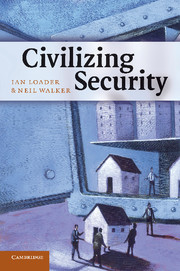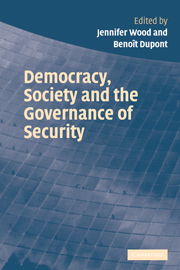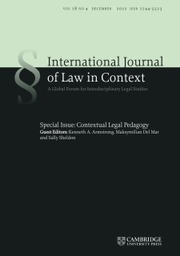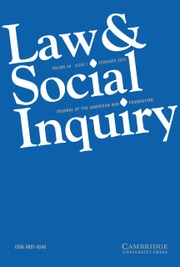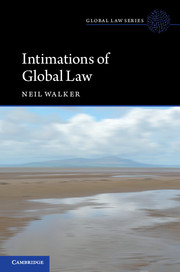Civilizing Security
$44.99 (P)
- Authors:
- Ian Loader, University of Oxford
- Neil Walker, European University Institute, Florence
- Date Published: May 2007
- availability: Available
- format: Paperback
- isbn: 9780521691598
$
44.99
(P)
Paperback
Other available formats:
Hardback, eBook
Looking for an examination copy?
If you are interested in the title for your course we can consider offering an examination copy. To register your interest please contact [email protected] providing details of the course you are teaching.
-
Security has become a defining feature of contemporary public discourse, permeating the so-called 'war on terror', problems of everyday crime and disorder, the reconstruction of 'weak' or 'failed' states and the dramatic renaissance of the private security industry. But what does it mean for individuals to be secure, and what is the relationship between security and the practices of the modern state? In this timely and important book, Ian Loader and Neil Walker outline and defend the view that security remains a valuable public good. They argue that the state is indispensable to the task of fostering and sustaining liveable political communities in the contemporary world and thus pivotal to the project of civilizing security. This is a major contribution by two leading scholars in the field and will be of interest to anyone wishing to deepen their understanding of one the most significant and pressing issues of our times.
Read more- Presents an original argument about the value of security, and the virtuous and necessary role that the democratic state has to play in its realization
- Leading authors in the field, including Ian Loader, who has been a leading critic of UK government justice policy
- A multidisciplinary work that draws on research and reflection in sociology, criminology, public law, regulation and international security studies
Reviews & endorsements
"Loader and Walker have well deserved reputations as being amongst the most thoughtful contemporary scholar writers on policing and security and this book will further enhance that standing. Given the current preoccupation with security, the need for a 'thickening' of the notion beyond the familiar coercive versus civil liberties frameworks could not be more pressing. Loader and Walker deftly unpick the complexities of the relationship between security and different understandings of the state and its functions. They also propose the development of a more rounded concept of security as a 'public good' and spell out in particular how what they term 'anchored pluralism' may contribute to a more grounded and progressive understanding of the term at the national and international level. An important and timely book which should be read will beyond the borders of criminology." -Professor Kieran McEvoy, Director, Institute of Criminology and Criminal Justice, Queens University Belfast.
See more reviews"'Civilizing Security' addresses one of the central problems of our time with the seriousness and imagination it deserves. In this well researched, wide-ranging study, Loader and Walker deepen our understanding of the meaning and sources of 'security'; rethink the state's role in its provision and governance; and develop an important argument about security's potential for building democratic political community." -David Garland, New York University School of Law
"A welcome attempt to offer a theory of security that avoids and critiques both those who urge security at any cost, and those who want security at no cost. Both camps make the mistake of treating security and democracy as at odds with each other, with the first seeing security as justifying the curtailment of democracy, and the second fearing that democracy fuels the demand for security at the expense of individual liberty. By contrast, Loader and Walker see security as a public good that democracy plays a key role in promoting and taming. A civilised and innovative approach to a topic that has been all too often understood in a crude and barbaric manner." -Richard Bellamy Professor of Political Science, UCL
Customer reviews
Not yet reviewed
Be the first to review
Review was not posted due to profanity
×Product details
- Date Published: May 2007
- format: Paperback
- isbn: 9780521691598
- length: 314 pages
- dimensions: 229 x 152 x 17 mm
- weight: 0.42kg
- availability: Available
Table of Contents
Prologue. On writing about security today
1. Uncivil security?
Part I. On State Scepticism:
2. The state as meddler
3. The state as partisan
4. The state as cultural monolith
5. The state as idiot
Part II. Securing States of Security:
6. The good of security
7. The necessary virtue of the state
8. The democratic governance of security
9. Security as a global public good.
Sorry, this resource is locked
Please register or sign in to request access. If you are having problems accessing these resources please email [email protected]
Register Sign in» Proceed
You are now leaving the Cambridge University Press website. Your eBook purchase and download will be completed by our partner www.ebooks.com. Please see the permission section of the www.ebooks.com catalogue page for details of the print & copy limits on our eBooks.
Continue ×Are you sure you want to delete your account?
This cannot be undone.
Thank you for your feedback which will help us improve our service.
If you requested a response, we will make sure to get back to you shortly.
×
